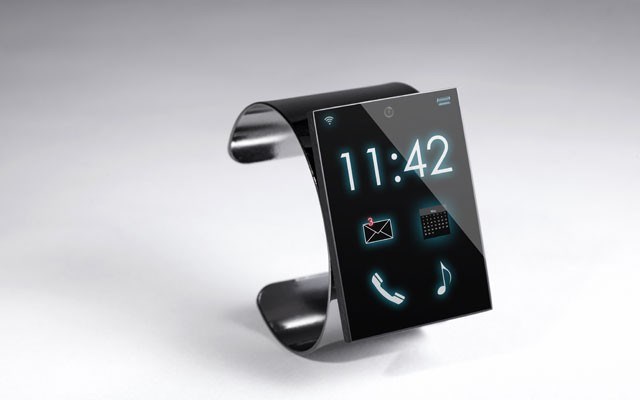Apple has a big announcement to make in September, and pundits are already predicting an update to the iPhone 5 (the iPhone 5s), plus a cheaper version of the phone to compete with all the other low-cost handsets out there that are killing Apple in the pay-as-you-go and third world markets. The operating system will also get an update.
One thing that's not coming out of the rumour mill, however, is concrete news about Apple's iWatch, although in a sense it's an announcement that's long overdue. I've been skeptical of the need and utility of Google Glass, the other wearable tech everyone's been talking about, but I happen to think smart watches are actually a pretty good idea. Judging by the number of entries coming in, including at least three credible independent smart watches that have launched on Kickstarter, the idea is taking off already.
In this horse race, Apple is already fairly late to the market, although that didn't seem to matter with the iPhone or iPad.
All of the smart watches that are available or due to be released are a little different, but basic functions include doing all the usual watch stuff (telling time, alarms) and syncing with your phone to issue reminders and alerts, and notifying the wearer about incoming texts, calls and emails so you don't have to pull your smart phone all the way out of your pants pocket anymore to see if you can ignore it.
Some of the smart watches have apps and games, including apps that can control your smartphone's music player, have heart rate monitors and motion sensors built in for people on the go, GPS trackers (also for people on the go), voice control, two-way calling, and more.
Some of the interesting phones already available include the Martian Passport (martianwatches.com), which actually looks a lot like a mechanical watch with a small, one-line screen for alerts; the Bluetooth connected i'm Watch (imsmart.com), the sportcentric Motorola MOTOACTV (motorola.com), the e-paper screened Pebble watch (getpebble.com) and the Android-based Sony MN2SW (store.sony.com). A website calling itself Smartwatch News(smartwatchnews.org)/smartwatch) has over 26 smart watches listed, a dozen of them already shipping.
Prices for smart watches range from $99 to $299 for the most part.
Oddly enough, it was another Apple product that alerted people to the potential of smart watches — the last generation iPod nano with the square form factor. Half a dozen companies popped up making watch straps for the devices, while coders got to work making unique apps and software. It's a shame that Apple had to drop the hammer on a product that was just getting good, but it's a necessary step for a company that's poised to launch its own smart watch soon. Again, possibly in September.
Blackberry for sale?
This week, Canadian smart phone pioneer Blackberry announced that it may be for sale (or at least up for joint ventures of some kind) following several disappointing years and another round of layoffs. It's probably a good idea, at least from a business/investor perspective — the company got left behind in the last generation and has not been able to make up as much ground as they should have with their new Q10 and Z10 phones or the BB10 operating system.
The company is far more valuable than its current stock prices would indicate, based on the strength of its proprietary technology and patents. Samsung, frustrated with Android, is a potential buyer here, and there are likely dozens of others — HP and Dell, for example, which have had trouble getting into the smart phone market, or Microsoft, which could put a lot of the company's patents to work.
But it's a shame all the same. The new Blackberry phones are as good, if not better, than most of the other phones on the market, and BB10 is probably the best OS and development platform going.
As well, Blackberry is a uniquely Canadian company, a real global innovator for a nation that is sorely lacking in that department. If we lose Blackberry, we'll lose jobs, revenue, tax revenues and all the benefits that go with having a leading high-tech company in terms of developing people and fostering future high tech startups.
Canada is rich in natural resources, but even those are increasingly being cornered and developed by foreign companies that buy up the Canadian companies that hold the development rights and tenures. There are no Canadian car companies, no major Canadian electronics companies. For all the wood harvested here you'd think that someone would be starting the next IKEA here.
Now compare Canada to Sweden where IKEA comes from. Not only do they have one of the world's largest furniture makers, Ericsson telecommunications, Electrolux appliances, TetraPak, three auto manufacturers (Saab, Volvo and Koenigsegg) and more. Some of these companies are managed in a multinational way, but all of them employ people and build capacity within Sweden.
Losing Blackberry will hollow out Canada's high-tech and innovation industries, and for that reason I'm hoping the company goes with the joint venture plan rather than an outright sale.




